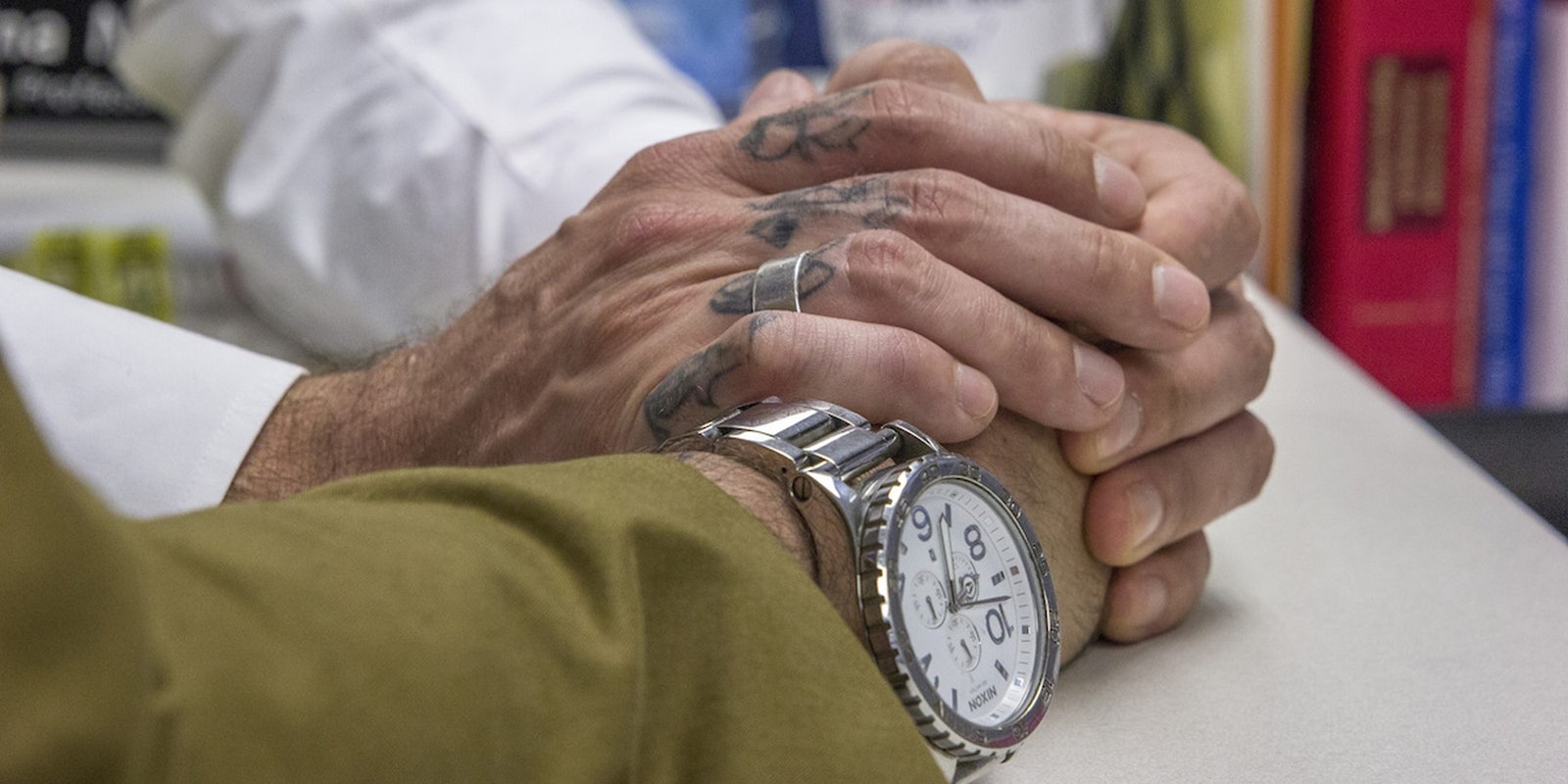Court officials in North Carolina may soon be able to opt out of performing marriages, a measure that is intended to prevent them from having to wed same-sex couples.
The law was passed by the Republican-controlled state legislature last week, but Republican Governor Pat McCrory, who vetoed it within hours, said public officials swear an oath to uphold the Constitution and, therefore, they can not pick and choose which duties they’ll perform.
“I recognize that for many North Carolinians, including myself, opinions on same-sex marriage come from sincerely held religious beliefs that marriage is between a man and a woman,” McCrory said, announcing his veto. “However, we are a nation and a state of laws.”
“I recognize that for many North Carolinians, including myself, opinions on same-sex marriage come from sincerely held religious beliefs.”
On Monday, the state Senate voted 32-16 to override McCrory’s veto. The state House of Representatives originally passed the measure above the majority threshold necessary to defeat the veto, however, 10 lawmakers were absent during the vote. The House vote that could override McCrory is scheduled to take place on Wednesday.
Republicans argue that government employees with sincere religious beliefs are entitled under the First Amendment to refuse to perform marriage ceremonies or sign marriage certificates for same-sex couples. Democrats say the bill is prejudicial and that gay couples, who have been able to legally wed since last fall, may be forced to wait longer to get married than heterosexual couples if a magistrate decides to opt out.
The bill’s supporters have rejected arguments that the law is a form of discrimination, because it does not permit magistrates to refuse gay couples while continuing to officiate other marriages. Magistrates who declare a “sincerely held religious objection” effectively opt out of performing any marriages for a period of at least six months.
“If a same-sex couple wants to get married in North Carolina, they will have the opportunity to get married in North Carolina,” said Republican Senate leader Phil Berger, reported the Associated Press.
Republican lawmakers across the country have been stepping up efforts to get similar religious-exemption laws passed as the U.S. Supreme Court prepares to rule on the constitutionality of same-sex marriage bans by the end of June.
The state of Indiana became the focus of controversy earlier this year when Governor Mike Pence signed a “religious-freedom” bill into law, effectively granting businesses owners who turn away gay couples a legal defense against civil lawsuits. Opponents of the bill claimed the law was nothing more than a license for businesses to freely discriminate against LGBT citizens. Similar bills have been introduced in at least 14 other states this year.
Photo by Grant Baldwin/Flickr (CC BY ND 2.0)
